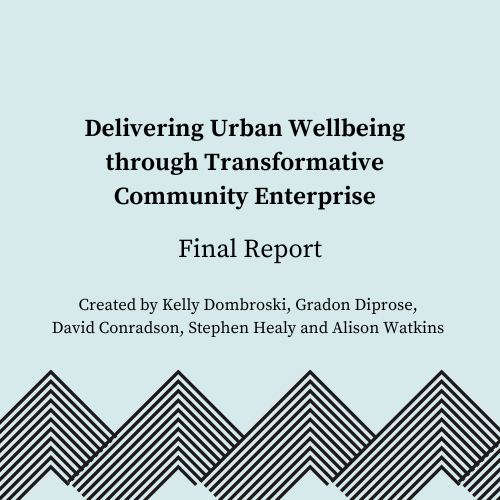Urban communities around the world are using farming and gardening to promote food security, social inclusion and wellbeing (Turner, Henryks and Pearson, 2011). In the New Zealand city of Christchurch, a recently formed social enterprise known as Cultivate currently operates two such urban farms. The farms, which use vacant urban land and green waste to grow and distribute locally grown food, are based around an innovative community form of economy that provides care and training for urban youth. The farms provide a therapeutic environment that is co-created by youth interns, urban farmers, social workers and community volunteers. Cultivate’s urban farms are a valuable example of a creative urban wellbeing initiative that may be useful for other organisations seeking to promote youth wellbeing, hauora,1 social development and urban food security in Aotearoa New Zealand and further afield. To document and measure the holistic impact of Cultivate, we collaborated with Cultivate staff, youth interns and other stakeholders to extend an already existing assessment tool: the Community Economy Return on Investment (CEROI). The CEROI tool was workshopped with urban designers, planners, and community practitioners to test its potential for documenting the non-monetary return of Cultivate’s work, and then communicating this return to those involved in other urban wellbeing projects. This report summarises the research and explains how we used the CEROI tool to document and measure the transformative social and environmental outcomes of Cultivate’s activities.

